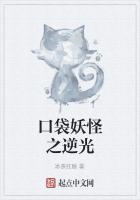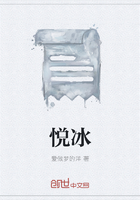Mary-'Gusta was growing accustomed to the life in the South Harniss home. She found it a great improvement over that which she had known on Phinney's Hill at Ostable. There was no Mrs. Hobbs to nag and find fault, there were no lonely meals, no scoldings when stockings were torn or face and hands soiled. And as a playground the beach was a wonderland.
She and Jimmie Bacheldor picked up shells, built sand forts, skipped flat stones along the surface of the water at high tide, and picked up scallops and an occasional quahaug at low water. Jimmie was, generally speaking, a satisfactory playmate, although he usually insisted upon having his own way and, when they got into trouble because of this insistence, did not permit adherence to the truth to obstruct the path to a complete alibi. Mary-'Gusta, who had been taught by the beloved Mrs. Bailey to consider lying a deadly sin, regarded her companion's lapses with alarmed disapproval, but she was too loyal to contradict and more than once endured reproof when the fault was not hers. She had had few playmates in her short life and this one, though far from perfect, was a joy.
They explored the house together and found in the big attic and the stuffy, shut-up best parlor the most fascinating of treasure hordes.
The former, with its rows of old trunks and sea chests under the low eaves, the queer garments and discarded hats hanging on the nails, the dusky corners where the light from the little windows scarcely penetrated even on a sunny May afternoon, was the girl's especial Paradise. Here she came to play by herself on rainy days or when she did not care for company. Her love of make-believe and romance had free scope here and with no Jimmie to laugh and make fun of her imaginings she pretended to her heart's content. Different parts of that garret gradually, in her mind, came to have names of their own.
In the bright spot, under the north window, was Home, where she and the dolls and David--when the cat could be coaxed from prowlings and mouse hunts to quiet and slumber--lived and dined and entertained and were ill or well or happy or frightened, according to the day's imaginative happenings. Sometimes Home was a castle, sometimes a Swiss Family Robinson cave, sometimes a store which transacted business after the fashion of Hamilton and Company. And in other more or less fixed spots and corners were Europe, to which the family voyaged occasionally; Niagara Falls--Mrs. Bailey's honeymoon had been spent at the real Niagara; the King's palace; the den of the wicked witch; Sherwood Forest; and Jordan, Marsh and Company's store in Boston.
Jimmie Bacheldor liked the garret well enough, but imagination was not his strongest quality and the best parlor had more charms for him. In that parlor were the trophies of Captain Shadrach's seafaring days--whales' teeth, polished and with pictures of ships upon them; the model of a Chinese junk; a sea-turtle shell, flippers, head and all, exactly like a real turtle except, as Mary-
'Gusta said, 'it didn't have any works'; a glass bottle with a model of the bark Treasure Seeker inside; an Eskimo lance with a bone handle and an ivory point; a cocoanut carved to look like the head and face of a funny old man; a Cuban machete; and a set of ivory chessmen with Chinese knights and kings and queens, all complete and set out under a glass cover.
The junk and the lance and the machete and the rest had a fascination for Jimmie, as they would have had for most boys, but for him the parlor's strongest temptation lay in the fact that the children were forbidden to play there. Zoeth and the Captain, having been brought up in New England families of the old-fashioned kind, revered their parlor as a place too precious for use. They, themselves, entered it not oftener than three times a year, and Isaiah went there only when he felt inclined to dust, which was not often. Shadrach had exhibited its treasures to the children one Sunday morning when Zoeth was at church, but he cautioned them against going there by themselves. "You'd be liable to break somethin'," he told them, "and some of them things in there you couldn't buy with money. They've been brought from pretty much everywheres in creation, those things have."
But, in spite of the warning, or because of it, Jimmie was, as Isaiah would have said, "possessed" to visit that parlor. He coaxed and teased and dared Mary-'Gusta to take advantage of the steward's stepping out of the house or being busy in the kitchen to open that parlor door and go in with him and peep at and handle the treasures.
Mary-'Gusta protested, but young Bacheldor called her a coward and declared he wouldn't play with cowards and 'fraid-cats, so rather than be one of those detestable creatures she usually swallowed her scruples and followed the tempter. It was a risk, of course, but a real adventure; and, like many adventurers, the pair came to grief.
They took David into the parlor and the cat wriggled from its owner's arms, jumped upon the table, knocked the case containing the chessmen to the floor, and not only broke the glass but decapitated one of the white knights.
Even the mild Mr. Hamilton was incensed when Isaiah told the news at supper time. And Captain Shad, who had bought those chessmen at Singapore from the savings of a second mate's wages, lost patience entirely.
"Didn't I tell you young-ones not to go into that parlor?" he demanded.
"Yes, sir," admitted Mary-'Gusta, contritely.
"Yes, by fire, I did! And you went just the same."
"Yes, sir."
"And you fetched that everlastin'--er--Goliath in there, too. Don't you know you've been a bad girl?"
"Ye--yes, sir."
Zoeth protested. "She ain't a bad girl, Shadrach," he said. "You know she ain't."















